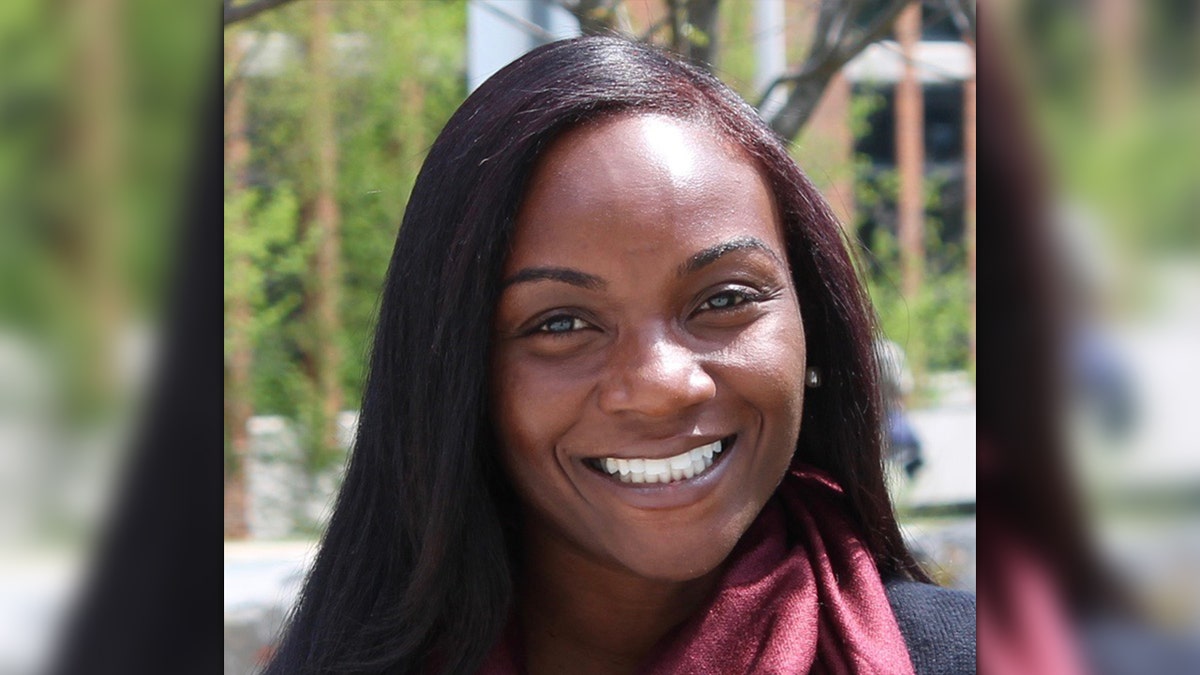Experts warn coronavirus testing is key to reopening government
Fox News medical correspondent Dr. Marc Siegel weighs in.
Get all the latest news on coronavirus and more delivered daily to your inbox. Sign up here.
Kizzmekia Corbett, 34, who is proudly Christian and was born in a small town in North Carolina, has been leading a team of scientists working around the clock at the National Institutes of Health (NIH) for an experimental vaccine against the coronavirus.
Earlier this month, her team had a breakthrough.
CLICK HERE FOR FULL CORONAVIRUS COVERAGE
It was time for a key test. If the vaccine revs up the immune system, the samples in a lab dish -- blood drawn from immunized mice -- would change color.
Minutes ticked by, and finally, the samples started glowing blue.
“Especially at moments like this, everyone crowds around,” said Corbett, an NIH research fellow leading the vaccine development.
When her team sent word of the positive results, “it was absolutely amazing.”

Kizzmekia Corbett. (WikiMedia)
Her team has already begun first-stage clinical trials of a vaccine, according to The New York Times.
The COVID-19 trials began in Seattle in March, and according to Dr. Anthony Fauci, in “record speed” -- just two months.
The vaccine could be ready for patients by early to mid-2021, if effective.
The new coronavirus is studded with a protein aptly named “spike” that lets the virus burrow into human cells. Block that protein, and people won’t get infected. That makes “spike” the target of most vaccine research.
Not so long ago, scientists would have had to grow the virus itself to create a vaccine. The NIH is using a new method that skips that step. Researchers instead copy the section of the virus’ genetic code that contains the instructions for cells to create the spike protein and let the body become a mini-factory.
Inject a vaccine containing that code, called messenger RNA or mRNA, and people’s cells produce some harmless spike protein. Their immune system spots the foreign protein and makes antibodies to attack it. The body would then be primed to react quickly if the real virus ever comes along.
Corbett’s team had a head start. Because they’d spent years trying to develop a vaccine against MERS, a cousin of the new virus, they knew how to make spike proteins stable enough for immunization, and sent that key ingredient to Moderna Inc. to brew up doses.
How to tell it’s a good candidate to test in people?
Corbett’s team grew spike protein in the lab -- lots of it -- and stored it frozen in vials. Then with the first research doses of vaccine that Moderna dubbed “mRNA-1273,” the NIH researchers immunized dozens of mice. Days later, they started collecting blood samples to check if the mice were producing antibodies against that all-important spike protein. One early test: Mix the mouse samples with thawed spike protein and various color-eliciting trackers, and if antibodies are present, they bind to the protein and glow.
Corbett says the work couldn’t have moved so quickly had it not been for years of behind-the-scenes lab testing of a possible MERS vaccine that works the same way.
“I think about it a lot, how many of the little experimental questions we did not have to belabor” this time around, she said. When she saw the first promising mouse tests, “I felt like there was a beginning of all of this coming full circle.”
She has long been called a superstar scientist.
Corbett got a full scholarship to the University of Maryland, Baltimore County, where she majored in biology and sociology.
She got a doctorate from the University of North Carolina - Chapel Hill in 2014 and joined the NIH’s Vaccine Research Center as a postdoctoral fellow the same year.

Kizzmekia Corbett. (WikiMedia)
“She’s brilliant and doing this complicated work and yet, somehow, is also this person who manages to remember everybody’s birthday. She’s really great at bringing together groups of people with different skills and understanding the value and contributions of each of them in ways that really maximizes scientific impact,” Andrew Ward, a Scripps Research professor who is part of Corbett’s team, told NBC News.
CLICK HERE FOR FULL CORONAVIRUS COVERAGE
Her job seemed to be in the cards, according to her family.
Her mother Rhonda Brooks told NBC News that her daughter was a very curious and questioning young girl, “always like a little detective.”
“I would say that my role as a scientist is really about my passion and purpose for the world and for giving back to the world,” Corbett said.
The Associated Press contributed to this report.









































